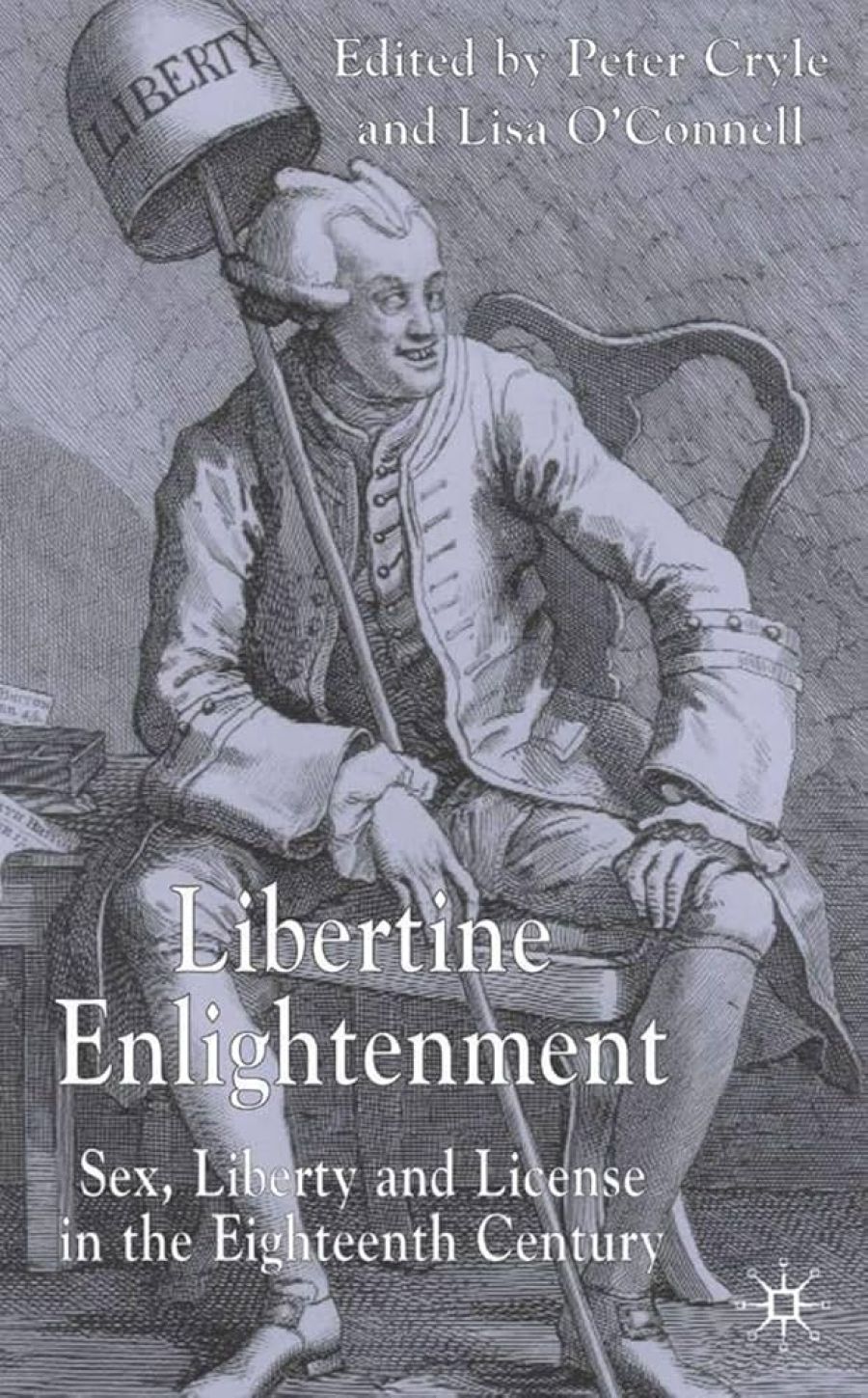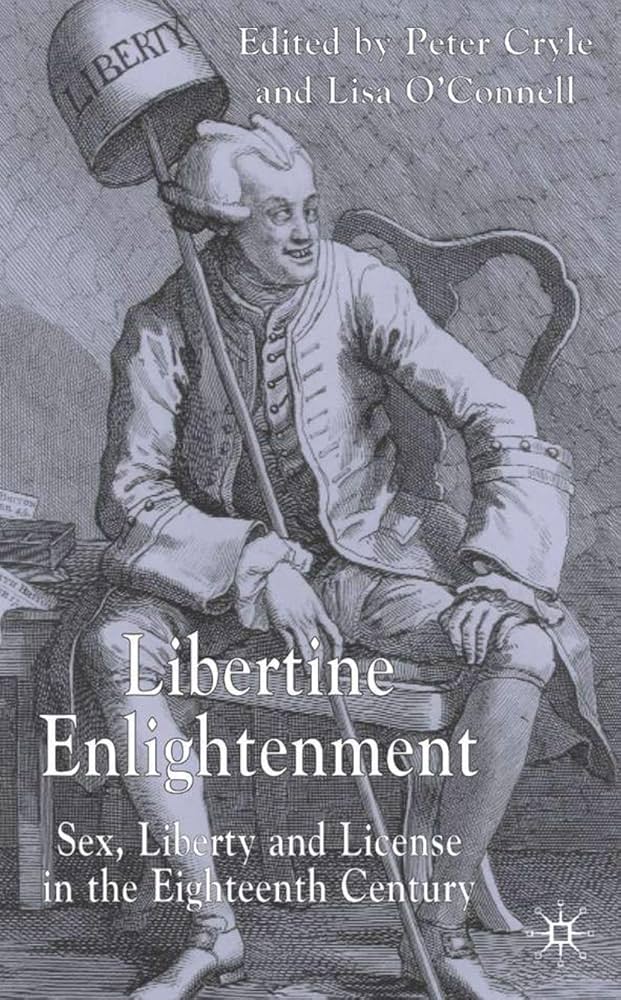
- Free Article: No
- Contents Category: Philosophy
- Review Article: Yes
- Article Title: Dissident Freedoms
- Online Only: No
- Custom Highlight Text:
As Peter Cryle and Lisa O’Connell point out in their excellent introduction to this collection of conference papers, ‘The Enlightenment is usually thought of as one of the great capital-letter moments in European history.’ But was its substance confined to the great works of Voltaire, Rousseau and Kant? Central to new readings of the Enlightenment is now the notion of ‘libertinism’. Once understood as the sexually free behaviour and attitudes of élite men, this collection is based instead on a wider, richer notion of, as the editors put it, ‘the vernacular, dissident freedoms of everyday life’. It was through unconventional sexual thought and behaviours, in particular, that the Enlightenment ‘vernacularised and dispersed itself’.
- Book 1 Title: Libertine Enlightenment
- Book 1 Subtitle: Sex, liberty and licence in the eighteenth century
- Book 1 Biblio: Palgrave Macmillan, £50 hb, 261 pp
- Book 1 Cover Small (400 x 600):

- Book 1 Cover (800 x 1200):

This alternative reading of the interplay between ‘élite’ and ‘popular’ culture owes much to the seminal work of Robert Darnton on the ‘literary low life’ (mainly ribald pamphlets) of eighteenth-century Paris (see The Literary Underground of the Old Regime, 1982, and The Forbidden Best-Sellers of Pre-Revolutionary France, 1995). Darnton discovered what the reading public wanted: a socially explosive mixture of political reflection (‘philosophy’) and obscenity. On booksellers’ shelves and under their counters, the Encyclopédie and the finest works of Rousseau, Diderot and d’Holbach jostled with illegal titles such as The Nun in the Nightshirt, La fille de joie and Louis XV’s Orgies. The ribald yet moralistic tone of the latter mocked the church, nobility and the royal family itself for both degeneracy and impotence, undermining, at the same time, the mystique of those born to rule as well as their capacity to do so.
While Enlightenment studies have been dominated by France, this approach has also been applied brilliantly to England by one of the authors in this collection, Iain McCalman (Radical Underground: Prophets, Revolutionaries, and Pornographers in London, 1795-1840, 1993). Another of the collection’s aims is to further ‘Europeanise’ such an approach though this is done only by moving the focus across the Channel, with an occasional glance at Germany.
In one important sense, the collection fails to break from traditional approaches to the Enlightenment. One of Darnton’s great contributions was to place ‘libertine’ studies within a social history of publishing and reading: what was published, and by whom? And who read it? In the process, we learnt a great deal about the cultural practices of the eighteenth-century urban common people’ in France. This collection, in contrast focuses entirely on the writings of individuals from the literary élite, as did the now out-of-favour literary studies. So we have pieces by Peter Cryle and Chantal Thomas on Casanova (who is omnipresent in the book), Alan Corkhill and Serge Rivière rereading Kant and Voltaire, respectively, and a series of intriguing studies of libertine women: Kathleen Wilson on ‘Lou’ Phillips, McCalman on Jeanne de la Motte, Nicola Parsons on Delarivier Manley and Lisa O’Connell on Harriette Wilson. Johnathan Mee, Peter Otto and Christa Knellwolf then look at some male counterparts: Charles Pigott, James Graham and Cagliostro. In general, these are skilled pieces of writing, but fail to go beyond explications de texte into the social history of culture.
Fine though the contributions are, then, the collection does not achieve one of its goals: to illuminate the ways in which ‘Enlightened’ precepts were disseminated by cultural practices in wider society. McCalman’s engrossing chapter on de la Motte, the key player in the ‘Diamond Necklace Affair’ of 1785, who used Marie-Antoinette’s name to accomplish an astonishing theft, is an example of the success and failures of the book, and of cultural studies in general. He pricks both Annaliste and Marxist historians for treating the affair as ‘trivial’, but, apart from turning it into a good read, fails to show how it mattered to wider society.
The thirteen contributions – from Australian and overseas scholars who participated in a conference at the University of Queensland in 2001 – are made cohesive by a common sense of purpose and a generally high quality.
Inevitably, some of the prose irritates the senses. Here is Simon During who, after an engaging piece on John Wilkes and Lawrence Sterne, bemoans today’s loss of political radicalism: ‘the licence to imagine a beyond or an alternative to the “system” has been revoked [by whom?]. Now practices of life, including political activism and literary reading and writing, can make no convincing claim except to “contribute to the support” of the hegemonic, dispersed cultural and social organisation that we inherit.’ During also suggests that the origins of this decline are evident in the 1760s, and that the libertine project was dead before it began. This would seem a very odd proposition to the fascinating men and women who are the subject of this fine collection.


Comments powered by CComment